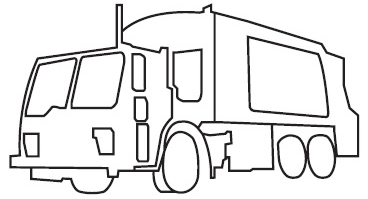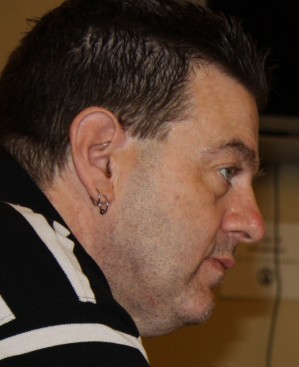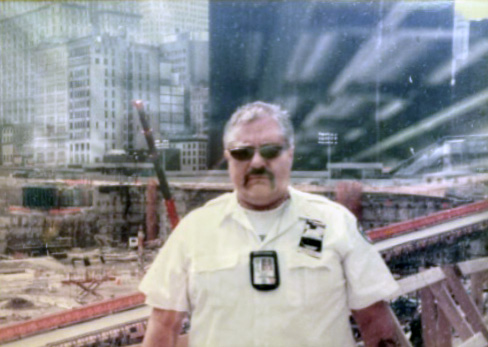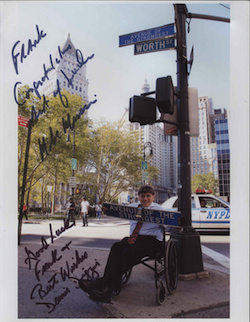INTERVIEW DETAILS —
Narrator: Jack Behan
Interviewer: Anna Weinreich
Date: March 17, 2011
Place: 14 University Place, New York, NY (Draper Program offices, NYU)
Duration: 3:26
Jack Behan (born March 11, 1959) worked for the DSNY from March 23, 1987 until May 17, 2007. The interview covers his childhood and how he grew up in Staten Island wanting to become a sanitation worker. He discusses how the gradual introduction of recycling in 1989 changed the job as well as the public’s perception of the profession. Other topics include the particularities of having a regular partner and the knowledge obtained about the social and cultural geography of regular routes. Additionally, Jack considers the public perception of the job in general, working the Blizzard of 1996, the physical aspects and dangers of the work, as well as questions of gender and sexuality.
Interview experience
I can see Jack coming down University Place from far away. He is a big, tall guy and we became friends on an infamous social media platform before meeting in real life. We decided to have the interview in Dr. Robin Nagel’s office in the Draper building at NYU. I came to the conference room ridiculously early, attempting to fight my anxiety by going over my questions and testing the recording equipment for what seems the seventh time. I didn’t succeed. But Jack’s charisma, and his loud, affectionate voice immediately fill the entire room and somewhat collide with the academic reserve surrounding us. He has made a Chocolate Date Nut Cake for the occasion, a family recipe. We sit down to have cake and coffee, we laugh, and my trepidation turns to excitement about what will become a three and a half hour interview.
Jack likes to emphasize that when he started working for the Department of Sanitation on March 23, 1987, he came on the job as an old-timer. And he did. His fascination with the work dates back as far as 1963 – Jack was four years old when he started watching the garbage truck from the window of his family home in Staten Island. He has an incredible memory for numbers. The truck he anxiously awaited three times a week as a child had the number 252-359 D-71. And while his story is one that stands out, it is also an example of the relationships forming along the regular routes of sanitation workers. The friendship with “his” garbage man, Joe, not only saw him occasionally riding in the front of the truck, but one day – without the knowledge of his parents – taking the bus after school to the sanitation garage in his neighborhood. Jack started his training when he was ten years old. The sanitation workers in the Staten Island garage would teach him every aspect of the job as they watched him grow up over many years. Jack’s curiosity and his love for the profession never subsided and he would visit the guys at the garage even after he started working for the Department of Environmental Protection in 1980.
Sanitation divides up the city into 59 districts, and in his 20 years with the department Jack has worked in almost every single one of them. During most of his career though, his home garage was located in BK 12, covering Borough Park, Kensington Ocean Parkway, and Midwood. I learned that being a public servant in Borough Park at times includes acting as the Shabbos goy for members of the orthodox Jewish community. Jack’s stories vividly illustrate a way of knowing about the cultural geography of his regular routes that is not commonly associated with sanitation work. He told me about how the gradual introduction of recycling changed his perception of the job. His account of the questions it raised among residents provide yet another example of how sanitation overrides the boundaries of such oppositions as ‘private’ and ‘public’. We also talked about what it was like to drive a snow plow during the Blizzard of 1996 for 14 hours at nighttime, only to come home and shovel your own sidewalk, and dig out your own car. Jack told me about the dangers of the work, his own injuries and hearing about colleagues and friends losing limbs or even their lives on the job. Most importantly, Jack takes great pride in his career as a sanitation worker, a sentiment linking all of the many other topics covered by the interview and providing a unique perspective on the city and the infrastructure which keeps it alive.



